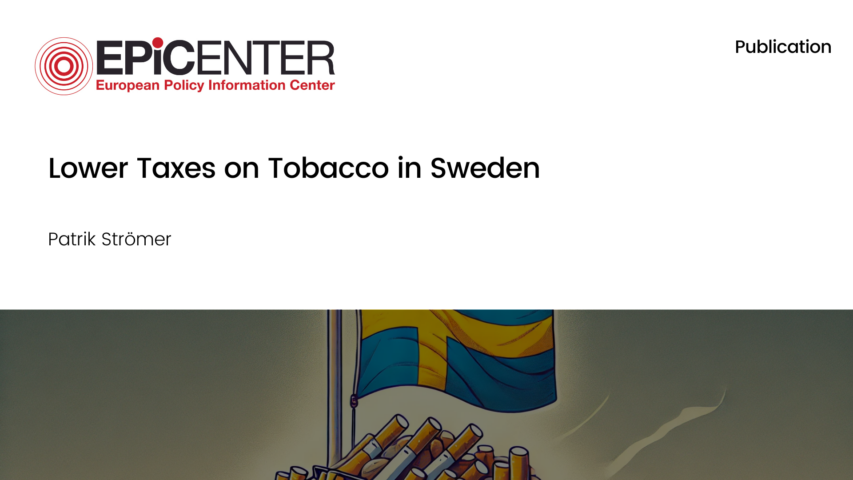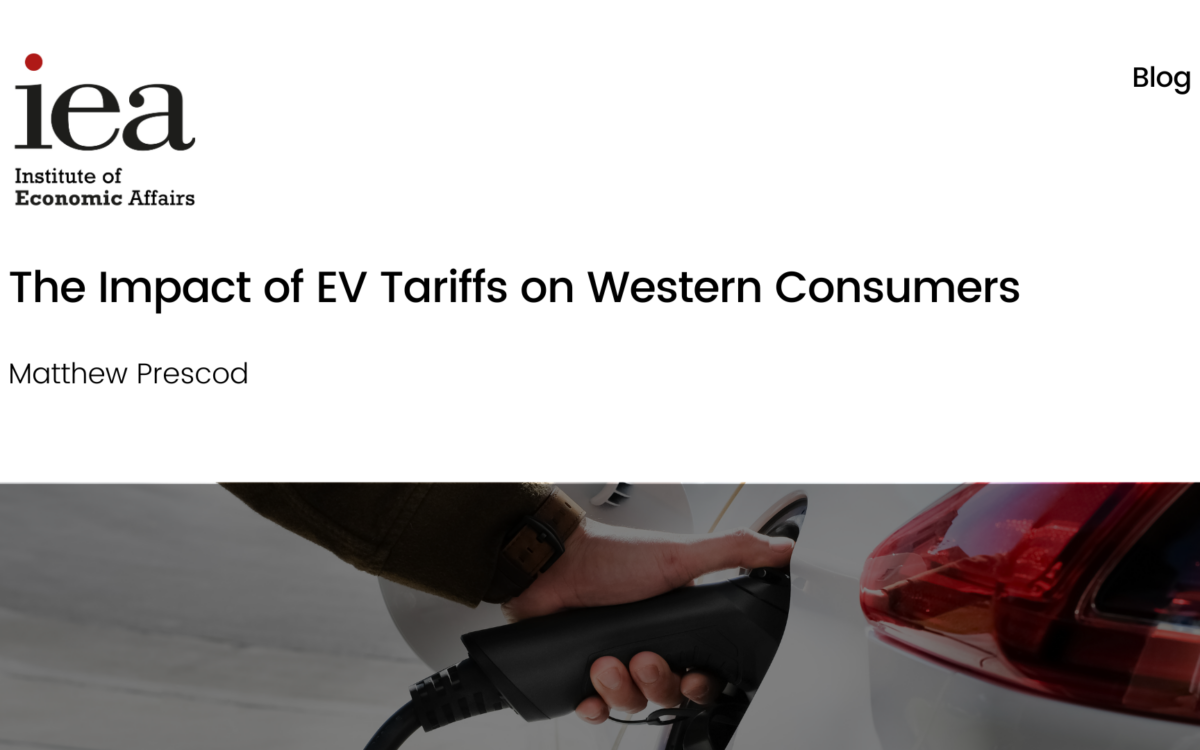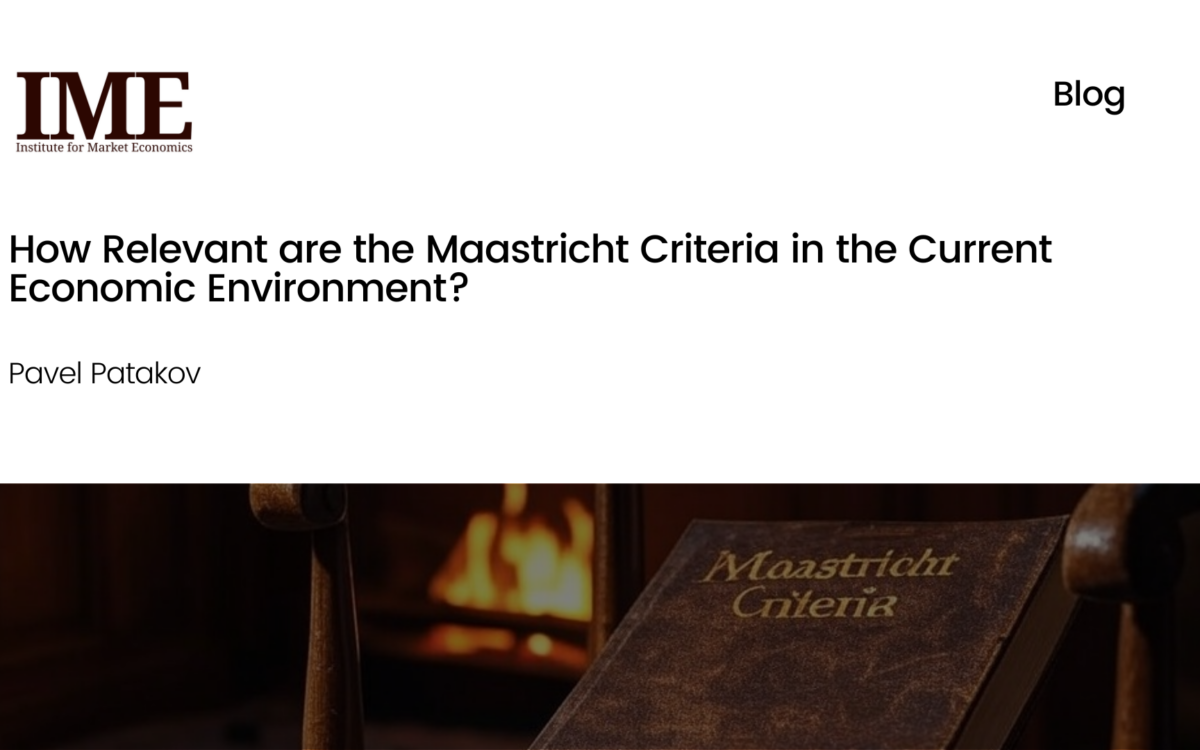Lower Taxes on Tobacco in Sweden

Lower Taxes on Tobacco in Sweden
Patrik Strömer // 9 November 2023
While Sweden is the only country in the EU where snus is allowed, it is also the country with the lowest smoking prevalence – and, hence, lesser risk of disease and premature death due to tobacco use – at least among the male population. The fact that even though Swedish men receive the same information, health warnings, and taxation as Swedish women but reported lower smoking rates for decades, needs an explanation. Indeed, with help from counselling or nicotine replacement therapy (NRT) pharmaceuticals, people can quit smoking cold turkey. Nonetheless, the Swedes, to a large extent, have chosen to switch from cigarettes to snus.
What is snus? It is ground tobacco mixed with water, salt, and flavours. It is smokeless and is used by being placed under the upper lip. For centuries, snus has been an affordable everyday enjoyment for hard-working people who needed both their hands free and ready for manual work – for instance, sailors, railroad workers, and farmhands. It was not invented as a harm-reduction product or an alternative to cigarettes. It was simply practical and convenient for the user.
When reports on lung cancer among smokers became common knowledge in the 1970s, Swedish men already had a viable option. At the time, snus was used ‘loose’ and looked like moist, coffee grounds. Though snus was seen as rural, backward, and even dirty, using it meant you could spare your lungs. Later, the invention of snus pouches made it cleaner to use as well. Even more men quit smoking from a 30 per cent prevalence rate in 1980 down to 5 per cent in 2022. But the women did not follow. Why? Because snus was regarded as a ‘male habit, Swedish women continued to smoke cigarettes and did not switch to snus. For decades, Swedish women smoked more than men, which is also unique! Does anybody know of any group of females, anywhere in the world and at any time in history, who behaved in a less healthy and more risky way than a similar group of men? If not, this lends credence to the hypothesis that snus is the reason for the low smoking prevalence in Sweden.
In recent years, innovation has continued. The nicotine pouch (NP) is similar to the snus pouch, but it contains no tobacco and is manufactured differently. When it entered the Swedish market, it soon became the preferred product among Swedish women. With the announcement of the general smoking ban in outdoor restaurants in 2019, the social norm changed rapidly. All of a sudden, it became okay, even cool, for women to put their cans on the table. And the smoke disappeared. During this time, NPs were regulated by the country’s Ministry of Finance, with a special excise tax of kr 200 /kg. In contrast, tobacco snus is taxed at kr 508/kg – more than twice the amount.
The industry came together to create a code of conduct regarding NP, and the age limit (18 years), health warnings, nicotine strength, and ingredients were put under regulation. This is comparable to tobacco snus, which is treated and regulated as food in Sweden. In August 2022, the new legislation came into effect, basically following the industry standard, which allowed the use of flavours since snus has had flavours for ages.
The quite new centre-right government has been in office for a year now, and in the budget for 2024, a 20 per cent reduction on the special excise tax on tobacco snus has been proposed. After years of higher taxes and the former government’s reluctance to admit that smoking is more harmful than smoke-free nicotine, this was quite a surprise! The rationale is a previous decision made by the Parliament to adopt a scientific approach to taxation: less harmful products should be taxed to a lesser extent, and more harmful products should be taxed at a higher rate. Though this is a simple principle, it is hard to implement. Everybody knows that there is nothing more addictive than taxes, so even harmless products that once were taxed tend to stay taxed because the government needs its fix.
The tax proposal has met some criticism, but it has been quite lame. Activists have been protesting, but the opposition is more cautious and perhaps wants to prioritise other issues. In the debate in the Swedish Parliament (Riksdagen) on 13 September 2023, Prime Minister Ulf Kristersson (M) responded to criticism regarding higher taxes and said: “Herr talman! Det är lite obegripligt, för regeringen höjer ingen annan skatt än möjligen den på cigaretter. Vi sänker skatten på snus. Det är en bra prioritering, tycker jag. [Mr Speaker! It is somewhat incomprehensible because the Government does not raise any other tax than on cigarettes. And we lower the tax on snus. It is a good priority, I think.]”
If the budget is approved by the Parliament, the tax will be reduced from 1 November 2024. One problem is that the Ministry of Finance has also proposed that the reduced tax be increased again, as soon as 1 January 2025, using an index correlated to inflation. This increase will probably be less than 10 per cent. This example shows the agony any government suffers while lowering taxes permanently.
With two smoke-free generations and Sweden getting closer to reaching below 5 per cent daily smokers among the adult population, Swedish politicians have finally decided that this result is something positive.
Patrik Strömer is the Secretary-General of the Swedish Association of Snus Manufacturers.
EPICENTER publications and contributions from our member think tanks are designed to promote the discussion of economic issues and the role of markets in solving economic and social problems. As with all EPICENTER publications, the views expressed here are those of the author and not EPICENTER or its member think tanks (which have no corporate view).



